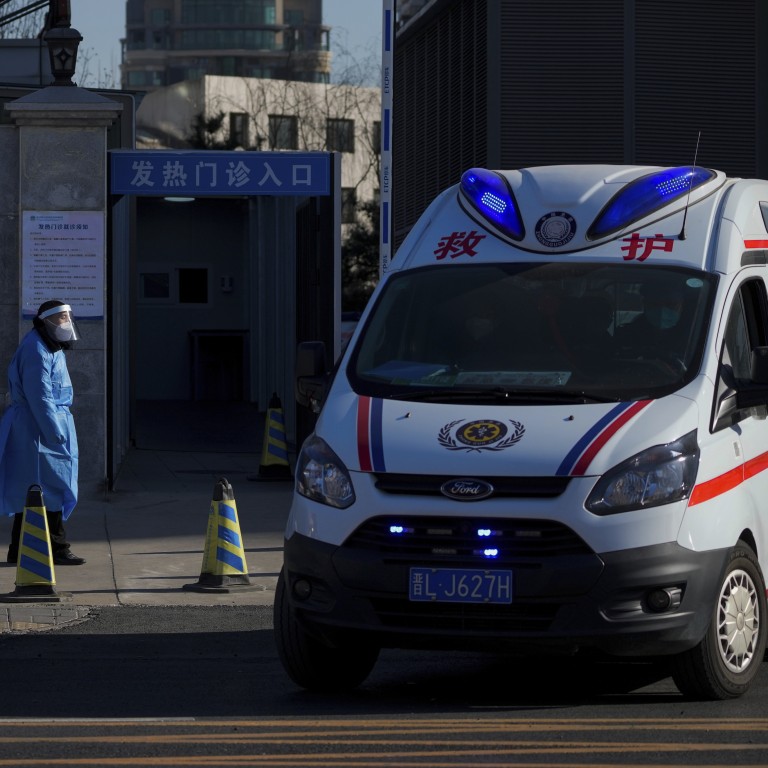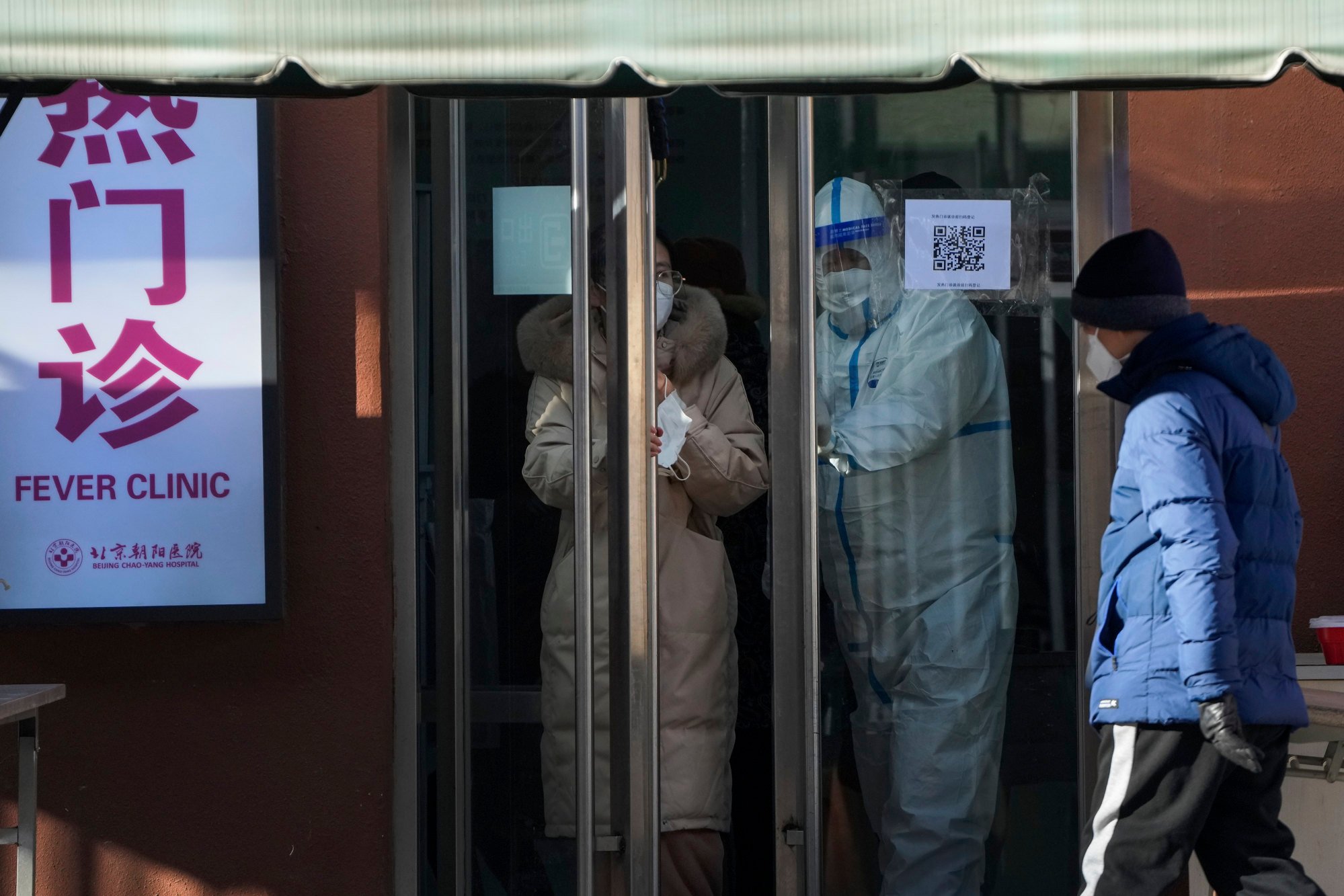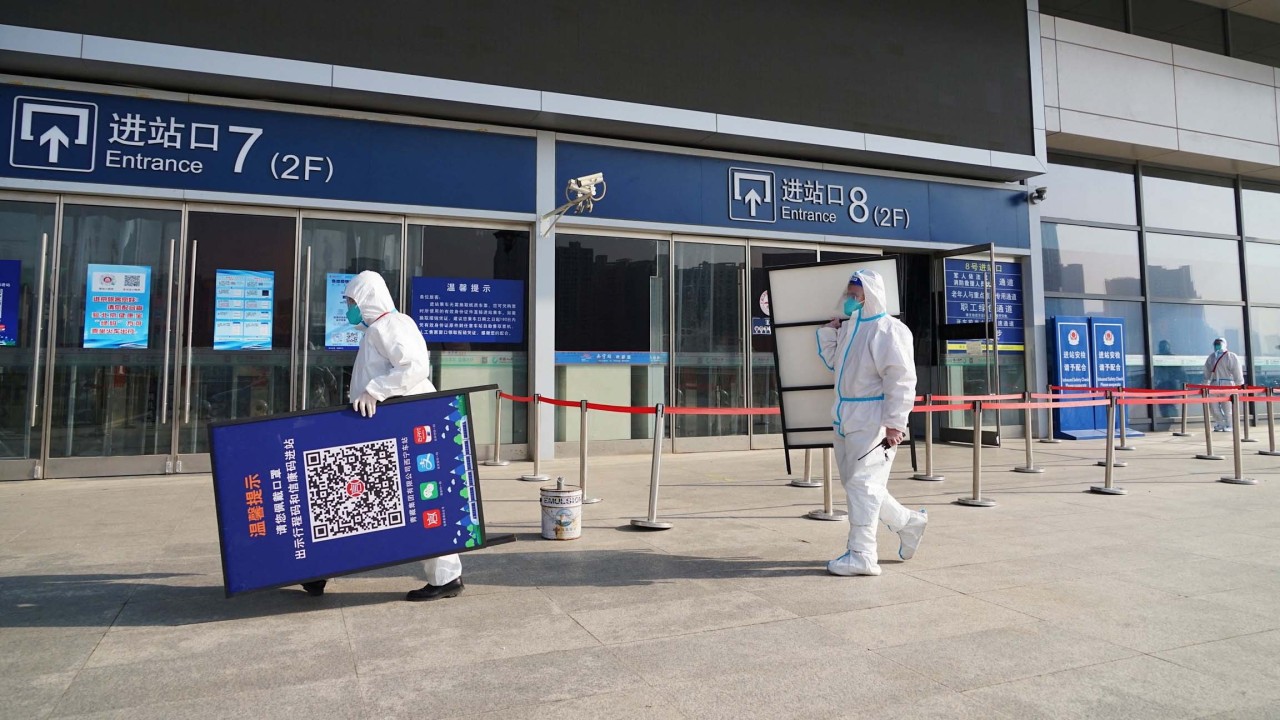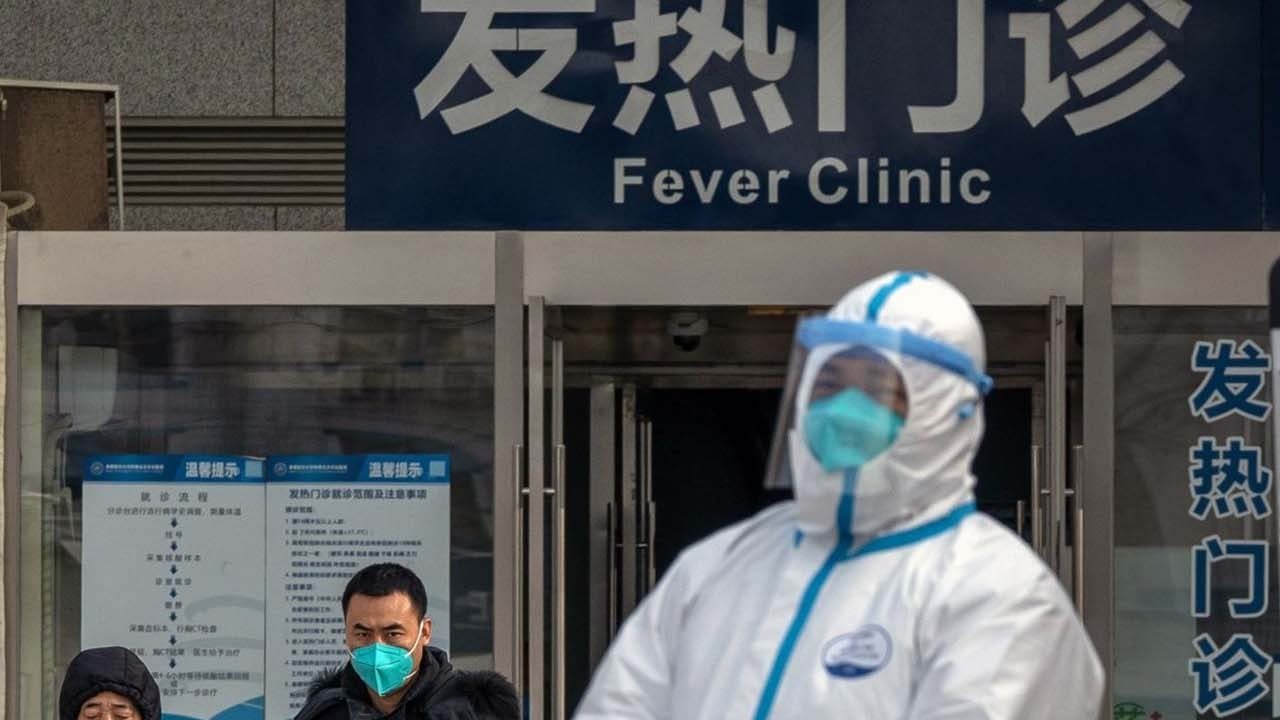
China reports first 2 Covid deaths since virus controls eased
- Number of deaths reported smaller than expected ‘but consistent with the very low rate of PCR testing’, expert says
- Cases are surging in Beijing, where hospitals are filling up and there is an apparent rise in demand at funeral homes
Benjamin Cowling, head of epidemiology and biostatistics at the University of Hong Kong, said the number of deaths reported since the restrictions eased was “a bit smaller than we might expect, but consistent with the very low rate of PCR testing in China now”.
“I think there are deaths due to Covid in China which are not laboratory confirmed and therefore not counted in the official tally, but that is true anywhere in the world – it’s not something unique to China,” he said.
Many residents in the capital are struggling to get hold of medicine, with long queues at hospital fever clinics and a spike in calls for ambulances.
At the Beijing Dongjiao Funeral Home, which handles Covid cases, grieving relatives say they have been kept waiting for days to have family members cremated.
One woman waiting outside, who would only give her family name of Wang, said her 83-year-old father-in-law had a heart problem and his situation had worsened after contracting the virus. He died in hospital on Monday morning.
“We’re trying to make an appointment for a cremation but I don’t know when it can happen,” she said.
Until Monday, China had not reported any Covid-related deaths since December 4 when two deaths were recorded – three days before the policy change was announced.
But there have been reports in the past two weeks that two retired state media journalists had died from Covid-19. Yang Lianghua, 74, a former People’s Daily reporter, died on Thursday, while Zhou Zhichun, 77, a former deputy editor-in-chief of China Youth Daily, died on December 8, according to financial magazine Caixin.
The National Health Commission did not report either death the following day.

In late November, total infections in China surpassed the peak during the spring outbreak in Shanghai that was driven by the Omicron variant and prompted a lockdown that brought the city to a halt for months.
Cowling said China was likely to see “a very large number of infections” in the current wave.
“Probably more than half of the entire population, but almost all infections being very mild and only a small fraction of infections leading to more severe disease. Excess mortality mainly in unvaccinated older adults,” he said.
“I am surprised that more isn’t being done to slow the spread of infections currently. Mitigation measures could reduce pressure on hospitals and save lives.”




